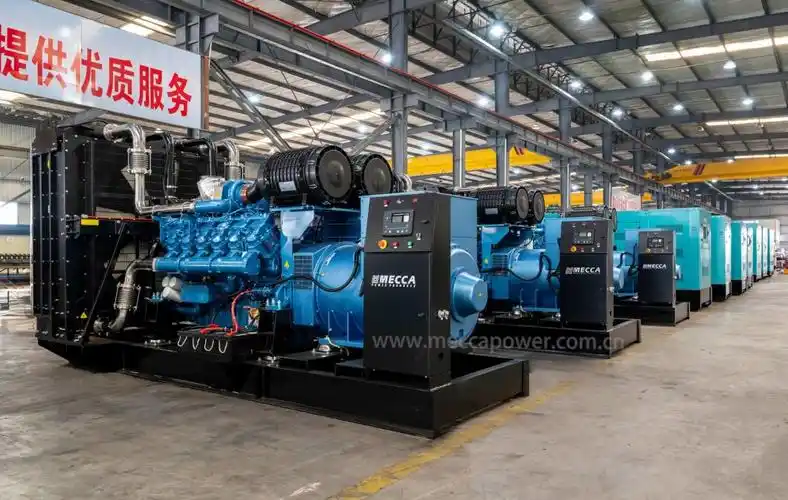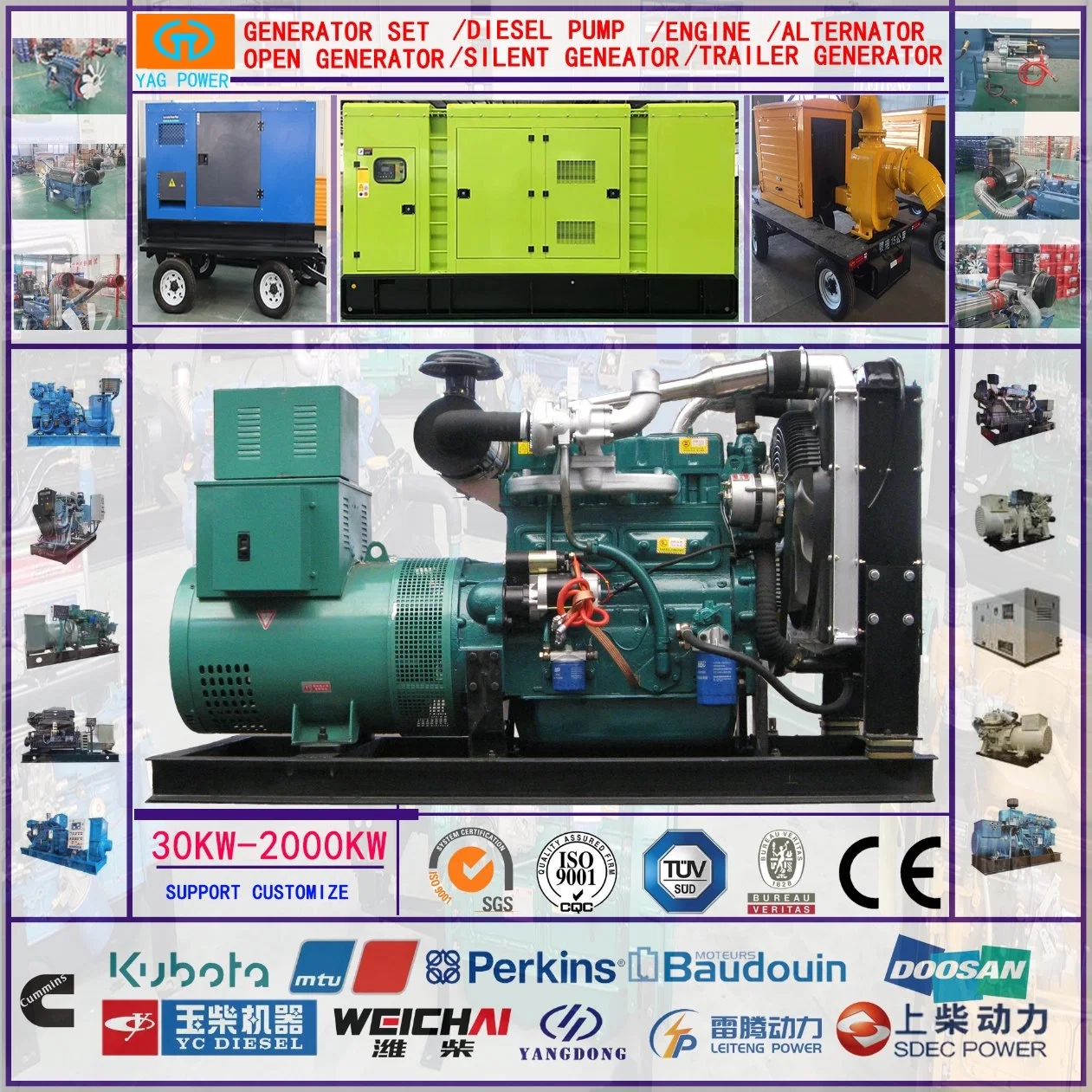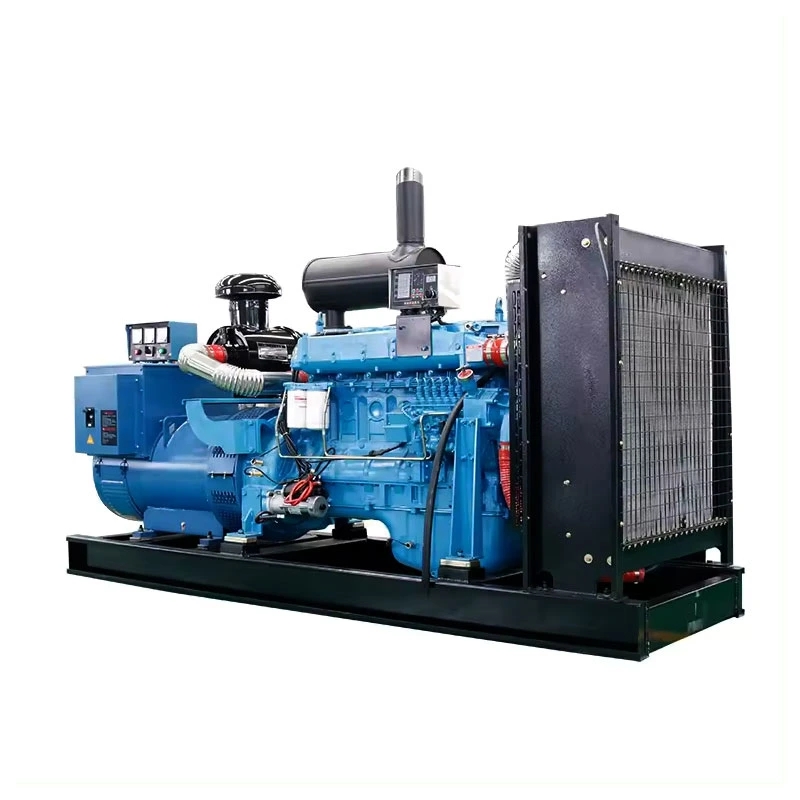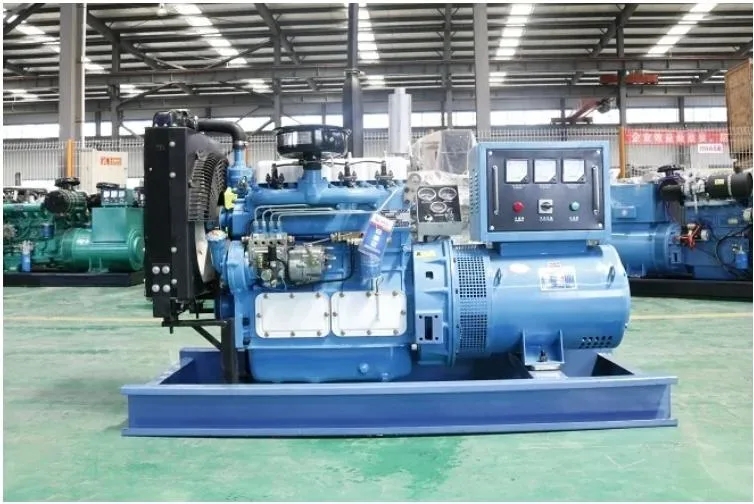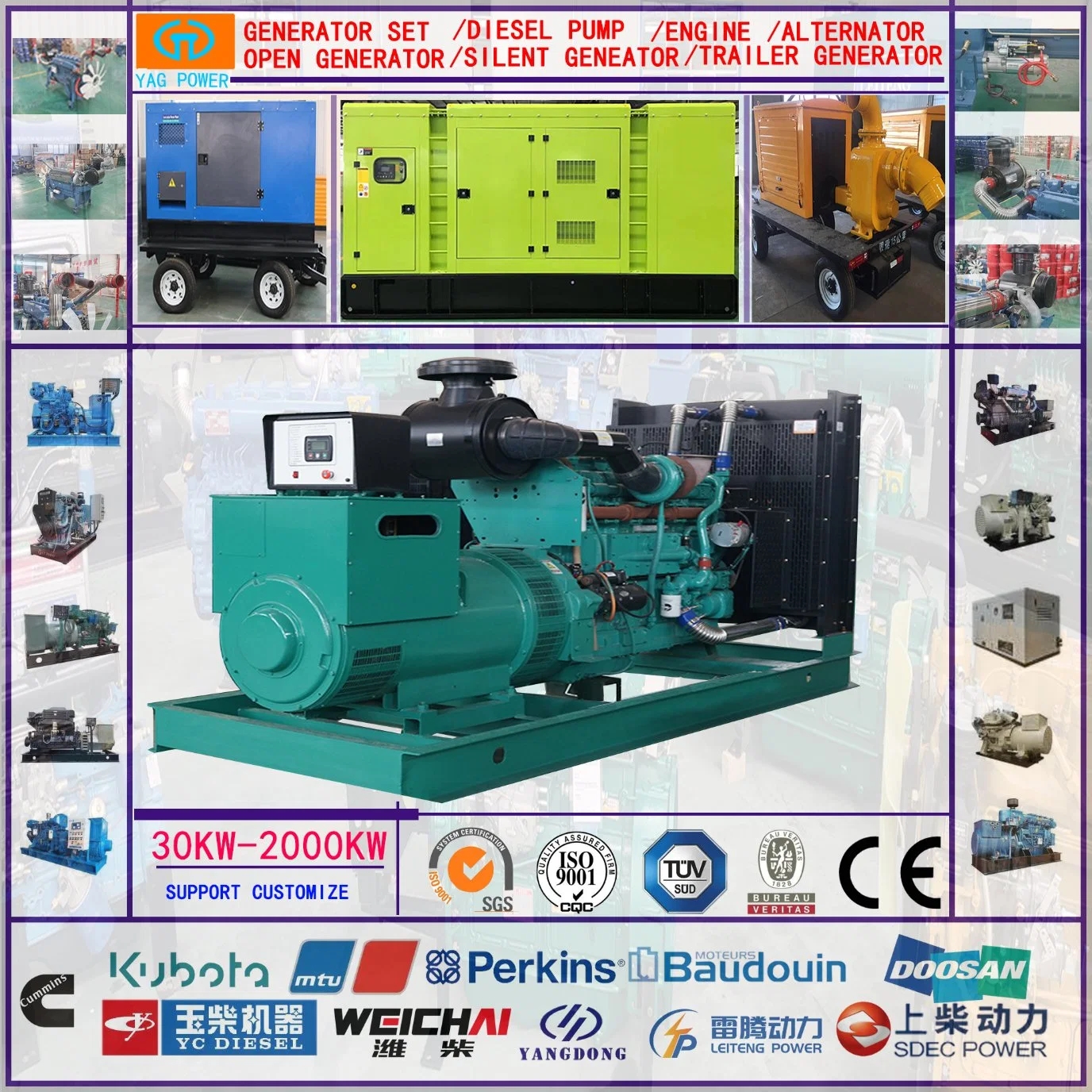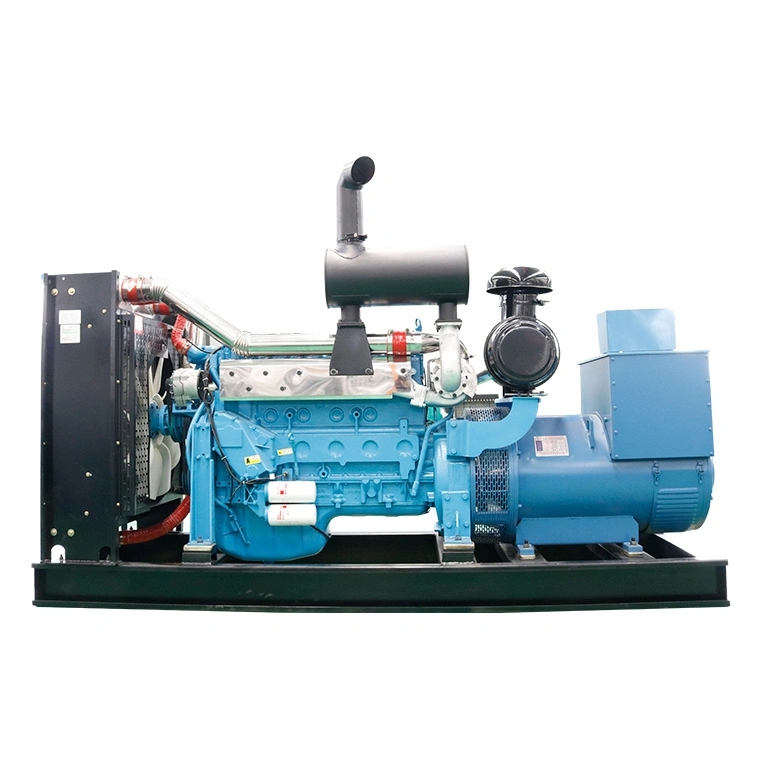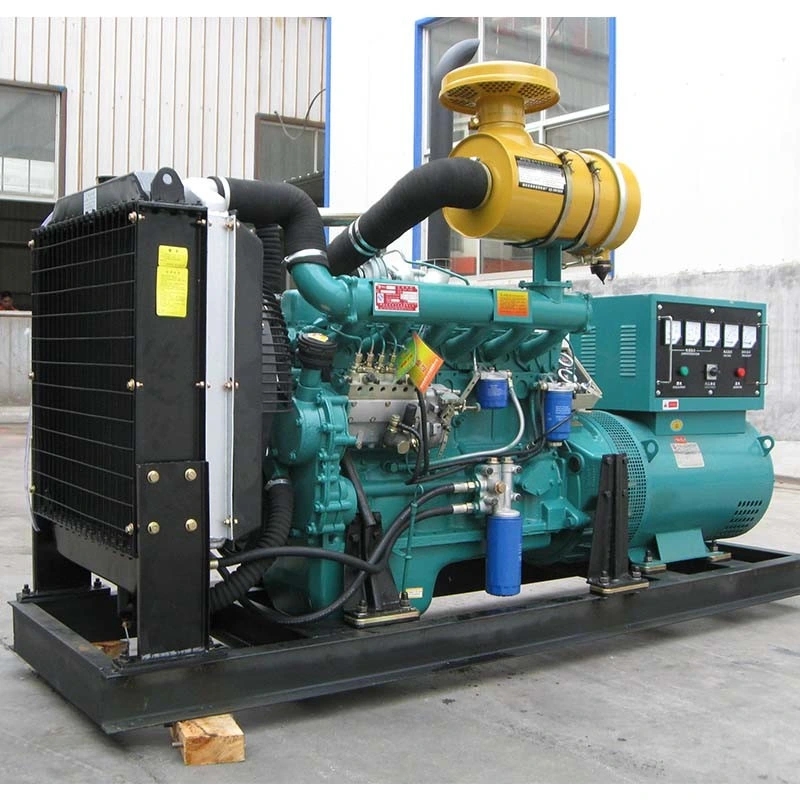Table of Contents
Toggle
Introduction
When it comes to ensuring a reliable power supply, few solutions match the robustness of a 200kW diesel generator. Whether you’re running a factory, managing a commercial complex, or preparing for emergencies, these generators are indispensable. Let’s dive into why they are so crucial and how you can make the most out of them.
What is a 200kW Diesel Generator?
At its core, a 200kW diesel generator is a powerful machine designed to convert diesel fuel into electrical energy, producing up to 200 kilowatts of power. This is enough to support substantial electrical loads, making it suitable for large-scale operations. The primary components include an engine, alternator, fuel system, voltage regulator, and cooling and exhaust systems.
The engine is the heart of the generator, responsible for burning diesel fuel to create mechanical energy. This mechanical energy is then converted into electrical energy by the alternator. The fuel system stores and supplies diesel to the engine, while the voltage regulator ensures that the output voltage remains stable. Finally, the cooling and exhaust systems keep the engine running at optimal temperatures and remove harmful gases produced during combustion.
Advantages of Using a 200kW Diesel Generator
Reliability
Diesel engines are renowned for their dependability, even under heavy loads. They are less likely to fail compared to other types of generators. This reliability stems from their robust design and fewer moving parts, which reduces the likelihood of mechanical failures. Additionally, diesel engines can operate for longer periods without requiring maintenance, making them ideal for continuous power supply applications.
Imagine running a large factory with multiple production lines that rely on a constant power supply. Any interruption in power can lead to significant downtime, affecting productivity and profitability. A 200kW diesel generator can provide the necessary backup power to keep your operations running smoothly, ensuring minimal disruptions.
Fuel Efficiency
Diesel fuel is more energy-dense than gasoline, which means these generators can run longer on the same amount of fuel. This efficiency translates to lower operating costs and reduced environmental impact. Diesel engines also have better thermal efficiency, meaning they convert more of the fuel’s energy into useful work compared to gasoline engines.
For example, consider a commercial building that requires backup power during frequent power outages. A 200kW diesel generator can provide reliable power for extended periods without consuming excessive amounts of fuel. This not only reduces operational costs but also minimizes the need for frequent refueling, allowing your staff to focus on more critical tasks.
Durability
Built to withstand harsh conditions, these generators have a longer lifespan and require less frequent repairs. Diesel engines are designed for heavy-duty applications and can handle high-stress environments without compromising performance. They are also less prone to wear and tear, thanks to their robust construction and use of high-quality materials.
Think about a remote construction site where access to reliable power is limited. A 200kW diesel generator can provide the necessary power to run heavy machinery and equipment, ensuring that your project stays on track. Its durability means it can withstand the rigors of outdoor use and continue to deliver consistent performance over time.
Applications of 200kW Diesel Generators
Industrial Use
In factories and manufacturing plants, where consistent power is non-negotiable, these generators are a lifeline. They can power heavy machinery, production lines, and critical systems, ensuring uninterrupted operations. For instance, in a food processing plant, maintaining a stable power supply is essential to prevent spoilage and ensure product quality.
Consider a steel manufacturing plant that relies on large furnaces and machinery to produce steel products. Any interruption in power can lead to costly delays and potential damage to equipment. A 200kW diesel generator can provide the necessary backup power to keep the plant running smoothly, preventing downtime and ensuring continuous production.
Commercial Use
Shopping malls, office buildings, and hospitals often rely on these generators for uninterrupted power. In commercial settings, maintaining a stable power supply is crucial for business continuity and customer satisfaction. For example, a hospital needs backup power to keep life-saving medical equipment operational during power outages.
Imagine a large shopping mall with multiple stores and restaurants. A sudden power outage can disrupt business operations, leading to lost sales and dissatisfied customers. A 200kW diesel generator can provide reliable backup power to keep the lights on and essential systems running, ensuring minimal disruption to business activities.
Emergency Backup Power
During natural disasters or power outages, having a 200kW diesel generator can be the difference between operational continuity and costly downtime. These generators can provide backup power for critical infrastructure such as communication networks, emergency services, and data centers.
For example, consider a data center that houses critical information for various businesses and organizations. Any interruption in power can lead to data loss and downtime, affecting multiple stakeholders. A 200kW diesel generator can provide the necessary backup power to keep servers and network equipment running, ensuring data integrity and business continuity.
How to Choose the Right 200kW Diesel Generator
Assessing Power Needs
Calculate your total power requirements to ensure the generator can handle your peak load. Consider factors such as the type of equipment you need to power, their individual power requirements, and any additional load that may arise during peak usage times.
For instance, if you operate a manufacturing plant with multiple machines that require varying amounts of power, you’ll need to calculate the total load to ensure your generator can handle it. It’s essential to factor in both the starting and running wattage of each piece of equipment to get an accurate estimate of your power needs.
Considering Brand Reputation
Opt for reputable brands known for quality and service. Established brands often have a proven track record of reliability and performance, backed by warranties and customer support. Research customer reviews and testimonials to gauge the experiences of other users with similar needs.
For example, brands like Caterpillar, Cummins, and Generac are well-known in the industry for producing high-quality diesel generators. Choosing a reputable brand ensures that you’re investing in a reliable product that will deliver consistent performance over time.
Evaluating Features and Specifications
Look for advanced features like automatic transfer switches (ATS), remote monitoring, and noise reduction capabilities. ATS automatically switches the power supply from the main grid to the generator during an outage, ensuring seamless transitions without manual intervention.
Remote monitoring allows you to keep track of your generator’s performance from anywhere using a smartphone or computer. This feature provides real-time data on fuel levels, runtime hours, and maintenance alerts, helping you stay proactive in managing your generator’s performance.
Noise reduction capabilities are essential for minimizing noise pollution in residential or commercial areas. Look for generators with soundproof enclosures or mufflers that reduce noise levels without compromising performance.
Installation and Maintenance Tips
Site Preparation
Ensure you have a suitable location that meets safety and operational guidelines. The site should be well-ventilated, away from flammable materials, and accessible for maintenance and refueling. Consider factors such as proximity to your main electrical panel and ease of access for technicians.
For example, if you’re installing a generator at a commercial building, choose a location that allows easy access for maintenance personnel while minimizing noise disruption to occupants. Ensure the site has adequate ventilation to prevent overheating and proper drainage to avoid water accumulation.
Regular Maintenance Schedules
Follow manufacturer recommendations for routine checks and servicing. Regular maintenance includes tasks such as changing oil filters, inspecting fuel lines, cleaning air filters, and testing battery performance. Adhering to a maintenance schedule ensures your generator operates at peak efficiency and reduces the risk of unexpected failures.
Consider setting up a maintenance log to track all service activities and keep records of inspections and repairs. This log helps you stay organized and ensures that no maintenance tasks are overlooked.
Common Issues and Troubleshooting
Be aware of common problems like fuel contamination or battery failure and know how to address them promptly. Fuel contamination can occur due to water or dirt entering the fuel tank, leading to clogged filters and reduced engine performance. Regularly inspect fuel lines and tanks for signs of contamination and use high-quality fuel additives to prevent issues.
Battery failure is another common issue that can prevent your generator from starting when needed. Regularly test battery voltage levels and replace batteries as recommended by the manufacturer.
If you encounter issues such as low oil pressure or overheating, refer to your generator’s user manual for troubleshooting steps or contact a qualified technician for assistance.

Cost Considerations
Initial Investment
When planning to purchase a 200kW diesel generator, the initial investment can be substantial. These generators are built for high performance and durability, which naturally comes with a higher price tag. However, it’s essential to view this expense as an investment rather than a cost. The reliability and efficiency of a diesel generator can lead to significant savings in the long run, particularly when compared to the potential costs of power outages and equipment downtime.
For instance, consider a manufacturing plant that relies on continuous power for production. A single power outage could halt operations, leading to significant financial losses. Investing in a reliable 200kW diesel generator ensures that the plant can continue operating smoothly, protecting against such costly interruptions.
Operational Costs
Operational costs include fuel, maintenance, and any repairs that might be needed over the generator’s lifespan. Diesel generators are known for their fuel efficiency, but it’s still important to factor in the cost of diesel fuel over time. Regular maintenance is crucial to keep the generator running efficiently and to prevent unexpected breakdowns. This includes periodic oil changes, filter replacements, and inspections.
While these operational costs are ongoing, they are typically lower than those associated with other types of generators. The robust design and longer lifespan of diesel generators mean fewer repairs and replacements, ultimately leading to lower total operational costs.
Long-Term Savings
One of the most significant advantages of investing in a 200kW diesel generator is the long-term savings. Due to their durability and efficiency, these generators often pay for themselves over time. Reduced downtime, lower maintenance costs, and fuel efficiency all contribute to these savings.
For example, a commercial building that experiences frequent power outages can save money by avoiding lost revenue and maintaining business operations with a reliable backup power source. Over several years, the cost savings from uninterrupted operations can outweigh the initial investment and operational costs of the generator.
Environmental Impact
Emission Standards
Modern diesel generators are designed to meet stringent emission standards set by regulatory bodies worldwide. These standards aim to reduce harmful emissions such as nitrogen oxides (NOx), particulate matter (PM), and carbon monoxide (CO). Manufacturers have incorporated advanced technologies such as exhaust after-treatment systems, selective catalytic reduction (SCR), and diesel particulate filters (DPF) to meet these requirements.
For instance, Tier 4 Final standards in the United States mandate significant reductions in NOx and PM emissions for non-road diesel engines. By choosing a generator that complies with these standards, you can minimize your environmental footprint while ensuring reliable power supply.
Eco-Friendly Alternatives
While diesel generators are more environmentally friendly than older models, there are also alternative fuels and technologies available that further reduce environmental impact. Biodiesel, for example, is a renewable fuel made from vegetable oils or animal fats that can be used in diesel engines with little or no modifications. Biodiesel produces fewer greenhouse gases and pollutants compared to conventional diesel fuel.
Additionally, hybrid generators that combine diesel engines with renewable energy sources such as solar panels or wind turbines are becoming increasingly popular. These systems can reduce fuel consumption and emissions by utilizing renewable energy when available and switching to diesel power when necessary.
Technological Advancements in Diesel Generators
Innovations in Fuel Efficiency
Recent innovations have made diesel generators more efficient than ever before. Advanced fuel injection systems, turbocharging, and electronic control units (ECUs) have improved combustion efficiency, resulting in lower fuel consumption and reduced emissions. Variable speed technology allows the generator to adjust its engine speed based on the load demand, further enhancing fuel efficiency.
For example, modern diesel generators equipped with common rail fuel injection systems can precisely control the timing and amount of fuel injected into the engine cylinders. This leads to more efficient combustion, higher power output, and reduced fuel consumption compared to traditional mechanical injection systems.
Smart Generators and IoT Integration
The integration of Internet of Things (IoT) technology has revolutionized the way diesel generators are monitored and managed. Smart generators equipped with IoT capabilities allow for remote monitoring and control via smartphones or computers. This technology provides real-time data on generator performance, including fuel levels, runtime hours, maintenance alerts, and fault diagnostics.
For instance, a facility manager can receive notifications on their smartphone if the generator’s fuel level is low or if maintenance is required. Remote monitoring also enables proactive maintenance, allowing technicians to address potential issues before they lead to costly breakdowns.
Additionally, IoT integration facilitates predictive maintenance by analyzing data trends and identifying patterns that indicate potential problems. This approach helps optimize maintenance schedules, reduce downtime, and extend the lifespan of the generator.
Conclusion
In summary, a 200kW diesel generator is a powerful and reliable solution for a variety of applications. Whether you need backup power for an industrial plant, commercial building, or emergency services, these generators offer unparalleled reliability, fuel efficiency, and durability. By carefully considering your power needs, evaluating features and specifications, and staying informed about the latest advancements in technology, you can ensure that you choose the right generator for your specific requirements.
Investing in a 200kW diesel generator not only provides peace of mind knowing that your power needs are covered but also offers long-term savings through reduced downtime and operational costs. Furthermore, modern emission standards and eco-friendly alternatives help minimize environmental impact, making diesel generators a responsible choice for sustainable power solutions.
So why wait? Invest in a 200kW diesel generator today and enjoy the benefits of reliable power supply for years to come. Whether you’re preparing for emergencies or ensuring continuous operations for your business, a 200kW diesel generator is an investment worth making.




